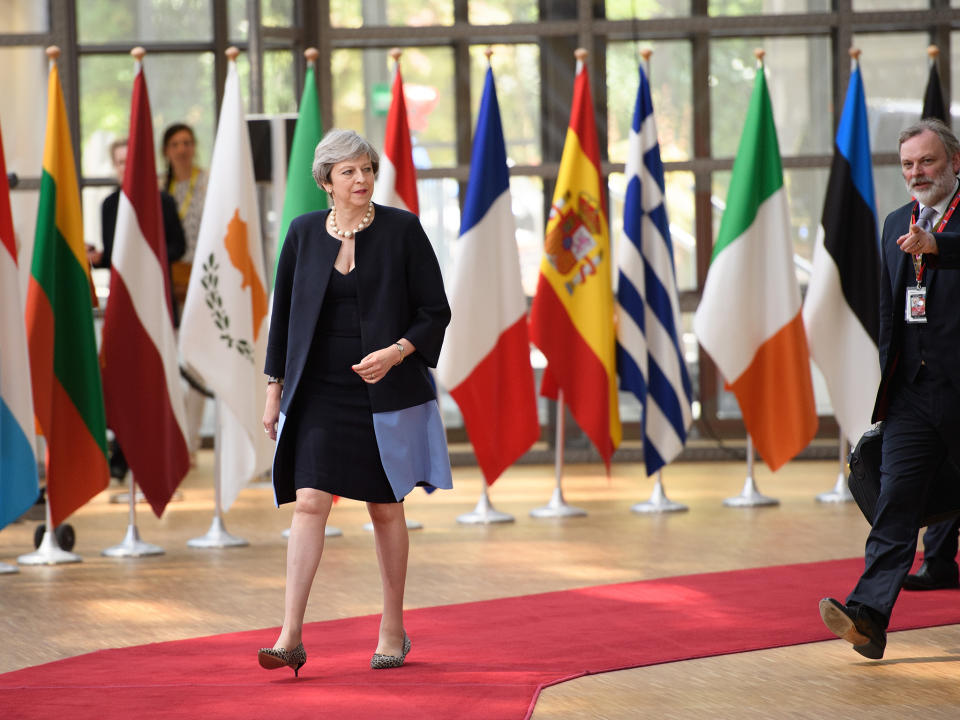The pessimists were wrong about Brexit, it hasn’t damaged the economy – yet

It is time to take stock. We are a year on from the Brexit referendum and a week on from the start of negotiations. That it should take a year to get from here to there will seem a touch lackadaisical to many, including many on the Continent, but it has brought one bonus. It has become clear that, in practical terms, Brexit will not be a single event, though in legal terms it may be. Had Europe remained the free trade area that the UK joined in 1973, it might have been. But the complexity of unravelling the web of agreements since then means that there will not only have to be a transition period; there will also have to be a string of continuing negotiations stretching into the far distance with whatever the EU becomes. For it too will change.
A bonus? Well, yes, because it should encourage both the UK and Europe to look beyond the rather bad-tempered present debate and think about what might be the optimal relationship between the two sides. If you see the current negotiations as an interim deal, some sort of holding operation, they become much more manageable.
From an economic perspective, we have learnt two things in the past year: one is that the sky did not fall in; the other is that the disruption to the economy is potentially damaging, and politicians on both sides can increase that damage if they are stupid.
One problem with all economic analysis is that we don’t know what is really happening until long after the event. But with that caveat, it is pretty clear that the immediate impact of Brexit on the real economy has been pretty close to zero. Growth may be slowing a bit now, but it might well have slowed anyway. Inflation is a bit higher than expected, but probably would have risen anyway. Employment is still very strong. Businesses say they are worried about the future but have kept hiring. The one big impact has been the fall of sterling, and there is a debate as to whether that is good (boosts manufacturing exports), or bad (pushes up prices). But the big message is that the pessimists have been wrong.
Now focus on the disruption. It has already added to the cost base of the financial sector, which has to shift some posts to Europe. Has to? Yes, because banks have to assume that to business in Europe they will have to locate more people there. Ultimately it will be customers who will pay for that. As yet, there is not much disruption in industry, or rather such disruption that has taken place has been as a result of the fall in sterling rather than Brexit itself. But given the complexity of European supply chains, manufacturers are understandably worried.
European exporters to the UK are also concerned, because since the crash of 2008, the UK has – for many – been their export strongest market. Of the G7 countries, only the US and UK avoided a second recession. Fear of more limited access to the UK market has just begun to shape European business lobbying – there was a Deloitte report on the German car industry last week showing how damaging a hard Brexit might be – though this has yet to feed through at a Commission level.
Put these two lessons together – little impact so far, but huge concerns about the future – and what do you get?
I suggest that from a UK perspective, we need to think long-term. This initial deal will not be an optimal one. So we need to figure out the long-term aims, which must surely put security, prosperity and opportunity for the next generation at the top of the scale. There will be a close continuing relationship with Europe, but also one with the rest of the English-speaking world. If we can use the freedom of Brexit to become more open to the rest of the world then that will create more opportunities, not fewer. The big point here is that the country has to look out, not in. Brexiteers need to become more open in their mindset. Remainers need to see what has happened as an opportunity, albeit along not a path they would have chosen themselves.
And from a European perspective? What troubles me about the past year is that frustration with the UK, understandable since it has taken us a long time to get to the negotiating table, might lead to an outcome that is unnecessarily damaging to the opportunities for their own next generation. You can catch a glimpse of that now, in the focus on the rights of EU citizens already in the UK, rather than the access of young people to the UK in the future.
The big point here is that the outcome could be win-win, not a zero-sum game, or worse. But it needs vision to see that.

 Yahoo News
Yahoo News 